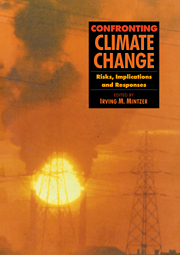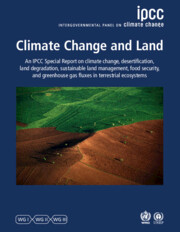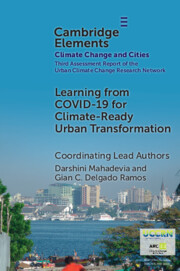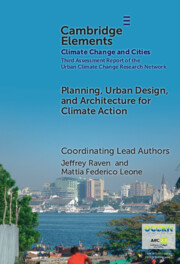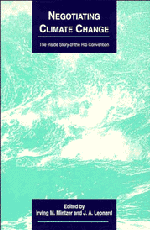Confronting Climate Change
Confronting Climate Change is a guide to the risks, dilemmas, and opportunities of the emerging political era, in which the impacts of a global warming could affect all regional, public and even individual decisions. Written by a renowned group of scientists, political analysts and economists, all with direct experience in climate change related deliberations, Confronting Climate Change is a survey of the best available answers to three vital questions: What do we know so far about the foreseeable dangers of climate change? How reliable is our knowledge? What are the most rewarding ways to respond? The book begins by exploring the key linkages and feedbacks that connect the risks of rapid climate change to other important environmental, economic and political problems of our time. Recognizing persistent uncertainties in the scientific understanding of climate change, the book draws attention to those areas of research which may reveal surprises which could change the sense of political urgency surrounding the climate problem - as did the discovery of the Antarctic ozone hole. It explores the geological record of climate change over the Earth's history, seeking a better understanding of how the climate has changed rapidly in countries while minimizing the long-term environmental damages which otherwise will result from continuing the current patterns of energy supply and use. The book is written to cross discipline boundaries, so that policy makers, economists, scientists, risk assessors, environmentalists and development advocates may understand each other's concerns. It shows how the international debate on managing the risks of rapid climate change may be re-shaped for the benfit of people in every nation on the planet.
- The best contributors in the world
- Emphasis on developing countries
Reviews & endorsements
"This authoritative, up-to-date and superbly produced book examines the risks, dilemmas and opportunities of the emerging political era in a warming world, focusing on the possible dangers of climate change, the reliability of this knowledge and the best ways to respond to the changes....with its level of commitment, expertise and specialization, this book cannot fail to become the leading statement on the consequences of climate change in the foreseeable future." Russell D. Thompson, Nature
"A noteworthy and influential book....The book is a survey of the best available answers to the questions of the extent and reliability of our knowledge of the foreseeable dangers and the best responses to make in order to avert or minimize them. A must for any library with readers who are either scientifically or sociopolitically literate or who seek to understand the mechanisms of the atmosphere and the influence of human activity upon it." A.R. Upgren Jr., Choice
"...a useful status report on such key climate change issues as the underlying scientific knowns, unknowns, and speculative judgments; the potential impacts of greenhouse warming--on hydrology and agriculture, for example; the technological opportunities and needed policy changes to facilitate more environmentally friendly energy use; and, closely related, the extent to which questions of economic efficiency, institutional change, social equity, and international negotiating strategies intrude--positively or negatively--upon achieving more reassuring climatic futures....a collection of considerable merit." Joel Darmstadter, Environment
Product details
June 1992Paperback
9780521421096
400 pages
299 × 212 × 20 mm
1.065kg
70 b/w illus. 25 tables
Available
Table of Contents
- 1. Living in a warming world
- Part I. The Science of Climate Change:
- 2. Linkages between global warming, ozone depletion, acid deposition, and other aspects of global environmental change
- 3. Climate sensitivity, climate feedbacks and policy implications
- 4. Lessons from the ice cores: rapid climate changes during the last 160,000 years
- 5. Changes in climates of the past: lessons for the future
- 6. Indices and indicators of climate change: issues of detection, validation and climate sensitivity
- Part II. Impacts of Climate Change:
- 7. Future sea level rise: environmental and socio-political considerations
- 8. Effects of climate change on food production
- 9. Effects of climate change on shared fresh water resources
- 10. Effects of climate change on weather-related disasters
- 11. The effect of changing climate on population
- Part III. Energy Use and Technology:
- 12. The energy predicament in perspective
- 13. Electricity: technological opportunities and management challenges to achieving a low-emissions future
- 14. Transportation in developing nations: managing the institutional and technological transition to a low-emissions future
- Part IV. Economics and the Role of Institutions:
- 15. The economics of near-term reductions in greenhouse gases
- 16. 'Wait and see' versus 'No regrets': comparing the costs of economic strategies
- 17. International organizations in a warming world: building a global climate regime
- 18. Modifying the mandate of existing institutions: NGOs
- 19. Modifying the mandate of existing institutions: corporations
- 20. International trade, technology transfer, and climate change
- Part V. Equity Considerations and Future Negotiations:
- 21. Sharing the burden
- 22. Climate negotiations: the North South perspective
- 23. Shaping institutions to build a new partnership: lessons from the past and a vision for the future.

